The high raw vegan diet is a variation of the traditional vegan diet, primarily focusing on the consumption of uncooked and minimally processed plant-based foods.
The majority of your food intake on this diet will consist of fresh fruits, vegetables, nuts, seeds, and sprouted grains, aiming to preserve the natural enzymes and nutrients found in raw foods.
By incorporating a high raw vegan diet, you can potentially optimize your health and reduce the risk of certain diseases.
Understanding this diet requires identifying essential nutrients, designing a meal plan, addressing nutritional concerns, and learning about food preparation techniques.
It is important to consider the health implications, medical considerations, and environmental aspects of adopting a high raw vegan lifestyle.
With proper knowledge and careful planning, you can ensure that you meet all your nutritional needs while enjoying a fulfilling and delicious diet.
Key Takeaways
- The high raw vegan diet consists of uncooked and minimally processed plant-based foods.
- Proper planning is essential to meet nutritional needs and address potential health concerns.
- Environmental and lifestyle considerations are important factors when adopting a high raw vegan lifestyle.

Understanding the High Raw Vegan Diet
Definition and Principles
The high raw vegan diet is a unique application of the principles of both raw foodism and veganism.
You consume mainly unprocessed, plant-based foods, and also avoid heating them beyond a certain temperature, typically around 104-118°F (40-48°C).
The belief behind this is that cooking or heating foods beyond this point can cause a loss of essential nutrients, enzymes, and potentially create harmful substances.
Benefits of Raw Food Consumption
There are multiple potential health benefits of consuming raw foods within your diet:
- Weight Loss: By consuming low-calorie, nutrient-dense plant-based foods, you might find it easier to maintain a healthy weight or even lose weight.
- Improved Digestion: The inclusion of natural enzymes in raw foods could potentially aid digestion and help break down the foods more efficiently.
- Increased Energy Levels: Consuming whole, unprocessed plant-based foods often leads to a boost in your energy levels and overall well-being.
However, it is essential to consider the balance between the benefits of consuming raw foods and the potential risks, such as nutrient deficiencies or food poisoning from improperly prepared or stored raw foods.
Nutrient Preservation in Raw Foods
One of the primary reasons people choose a high raw vegan diet is the belief that raw foods preserve essential nutrients.
Cooking can cause some loss of vitamins, particularly water-soluble ones like vitamin C.
By keeping your food raw or minimally processed, you could potentially maintain higher nutrient levels in comparison to cooking or processing the same foods.
In summary, the high raw vegan diet represents a lifestyle choice with potential advantages.
With its focus on unprocessed, plant-based foods, it may contribute to weight loss, improved digestion, and increased energy levels.
However, it is crucial to ensure a well-balanced and informed approach to provide optimum nutrition and avoid potential risks.
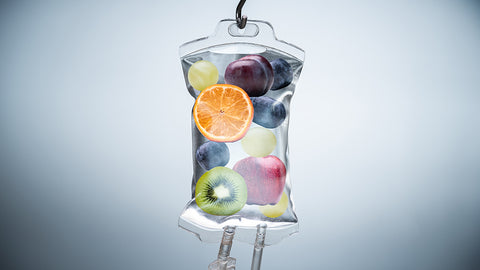
Essential Nutrients and Sources
Vitamins and Minerals in a Raw Diet
A high raw vegan diet provides an abundance of vitamins and minerals.
Most notably, you'll find high concentrations of vitamin A and beta-carotene in fruits and vegetables.
However, certain essential nutrients may be lacking in a raw vegan diet, such as vitamin B12 and calcium.
To ensure you're getting enough calcium, include calcium-rich, raw vegan foods like kale, collard greens, and figs.
For vitamin B12, you may need to consider fortified foods or supplements.
Key Vitamins and Minerals:
- Vitamin A: carrots, sweet potatoes, spinach
- Beta-carotene: sweet potatoes, spinach, red bell peppers
- Vitamin B12: fortified foods, nutritional yeast, supplements
- Calcium: kale, collard greens, figs
Balancing Proteins: Nuts, Seeds, and Legumes
Ensuring adequate protein intake is crucial on a high raw vegan diet.
Nuts, seeds, and legumes provide a great source of protein and are linked to lower blood sugar levels, making them a staple food for raw vegans.
Additionally, they provide essential nutrients such as iron.
Several options for protein-rich foods include almonds, hemp seeds, and sprouted lentils.
However, it's essential to vary your protein sources to obtain all the necessary amino acids.
Example Protein Sources:
- Nuts: almonds, walnuts, cashews
- Seeds: hemp seeds, chia seeds, sunflower seeds
- Legumes: sprouted lentils, chickpeas, mung beans
Incorporating Healthy Fats and Oils
Healthy fats are an essential component of a high raw vegan diet.
Foods such as avocado, nuts, and seeds not only provide essential fatty acids, but they also contribute to satiety and help absorb fat-soluble vitamins.
When it comes to oils, opt for unprocessed, cold-pressed options like olive oil and coconut oil.
These oils retain more nutrients and antioxidants compared to their highly processed counterparts.
Examples of Healthy Fats and Oils:
- Avocado
- Nuts and seeds
- Olive oil
- Coconut oil
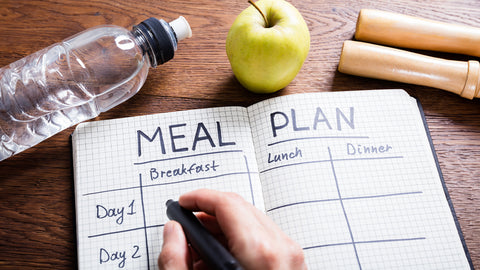
Designing a High Raw Vegan Meal Plan
A high raw vegan meal plan focuses on consuming predominantly uncooked plant-based foods, such as fruits, vegetables, nuts, and seeds.
By designing a balanced and diverse meal plan, you can ensure that your body receives the necessary nutrients while enjoying the abundance and freshness of raw, plant-based ingredients.
Creating Nutrient-Dense Salads and Smoothies
To make the most out of a high raw vegan diet, consider incorporating nutrient-dense salads and smoothies into your daily routine.
For salads, make sure to include a variety of colorful vegetables such as spinach, carrots, and berries to maximize nutrient intake.
In addition to greens and vegetables, you can also add nuts and seeds to boost the protein content.
For smoothies, feel free to experiment with different combinations of fresh fruits and veggies to find your favorite flavors.
You may also consider adding a protein source, such as chia seeds or hemp seeds, for a balanced and satisfying meal.
Selecting Fresh Fruits and Vegetables
The key to a successful high raw vegan meal plan is choosing fresh, high-quality fruits, and vegetables.
Focusing on seasonal and local produce can help ensure your ingredients are at their peak flavor and nutritional value.
You may want to consider visiting a local farmer's market or joining a community-supported agriculture (CSA) program to source the freshest produce possible.
Throughout the year, make an effort to incorporate a variety of fruits and vegetables into your diet, such as:
- Leafy greens: spinach, kale, collard greens
- Cruciferous vegetables: broccoli, cauliflower, cabbage
- Root vegetables: carrots, beets, turnips
- Fruits: berries, apples, oranges, bananas
Quick and Easy Raw Vegan Recipes
A high raw vegan diet does not have to be time-consuming or complicated. There are numerous quick and easy recipes available that can provide nutritious and satisfying meals.
For instance, you can try making a Tomato cucumber sandwich on onion and cornbread, which is packed with healthy proteins and omega-3 fats from seeds.
Another option is a Raw Vegan Pizza, which is oil-free and loaded with nutrient-dense toppings like sun-dried tomatoes, marinated veggies, and cilantro pesto.
Exploring various recipes and experimenting with different combinations of ingredients and flavors will help keep your meals exciting and tasty on a high raw vegan diet.

Addressing Common Nutritional Concerns
Ensuring Sufficient B12 and Vitamin D Intake
One main concern about the raw vegan diet is the lack of vitamin B12 and vitamin D.
These two essential nutrients are mostly found in animal products.
However, you can still obtain them through other sources.
For vitamin B12, consider incorporating fortified nutritional yeast and plant-based milk into your diet.
Alternatively, you could opt for B12 supplements.
Vitamin D can be obtained through sun exposure, as well as certain foods like mushrooms.
You can also include vitamin D supplements, ensuring you select a vegan-friendly form.
Protein and Iron Sources in a Raw Vegan Diet
Protein is an essential macronutrient required for growth, repair, and maintenance of our body.
Fortunately, raw vegans have plenty of options for obtaining protein:
- Seeds: Chia seeds, flaxseeds, hemp seeds, and pumpkin seeds are high in protein.
- Nuts: Almonds, walnuts, and cashews can be great sources of protein. Make use of their versatility by mixing them in salads or consuming them as nut butter, such as almond butter.
- Sprouted grains: Sprouted quinoa, buckwheat, or lentils can provide you with protein and also make delicious meal bases.
Iron, another nutrient of concern in a raw vegan diet, is essential for strong immunity, oxygen transport, and energy production.
Plant-based iron sources include:
- Leafy greens: Spinach and kale are rich in iron, ideal for smoothies or salads.
- Seeds: Pumpkin seeds, flaxseeds, and chia seeds offer a good dose of iron.
- Dried fruits: Incorporate dried apricots and raisins into your diet for an iron-rich snack.
Calcium-Rich Foods Without Dairy
While it's a common misconception that calcium can only be obtained through dairy, there are plenty of plant-based sources for this essential mineral:
- Leafy greens: Dark leafy greens like rainbow chard, collard greens, and broccoli provide significant calcium content. You can easily integrate them into your raw meals.
- Nuts and seeds: Almonds, sesame seeds, and tahini are calcium-rich options for raw vegans.
- Seaweed: Various types of seaweed like wakame, dulse, and kelp are rich in calcium. Incorporate them into your salads or snacks for added nutrition.
By taking these factors into account and incorporating them into your raw vegan diet, you can ensure that you are meeting your essential nutritional needs.
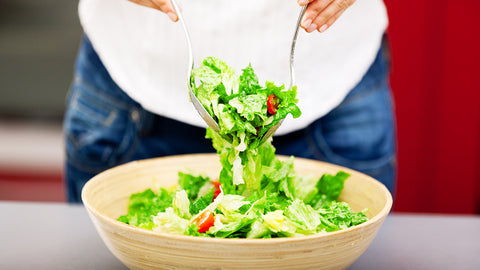
Food Preparation Techniques
Soaking and Sprouting Seeds and Legumes
In a high raw vegan diet, it is essential to learn how to properly prepare seeds and legumes.
Soaking them in water helps to soften them, making them easier to digest and enhancing their nutritional properties.
Start by rinsing your seeds or legumes thoroughly and then soaking them in water for the recommended duration.
After soaking, rinse and drain them again before using them in your recipes.
Sprouting, another powerful technique, involves soaking seeds or legumes for a longer period, allowing them to germinate.
This process unlocks additional nutrients and enzymes, further boosting their health benefits. To sprout seeds and legumes, follow these simple steps:
- Rinse your seeds or legumes thoroughly.
- Soak them in water for the designated period.
- Drain the water and rinse them again.
- Place the seeds or legumes in a sprouting container or a jar with a cheesecloth cover.
- Rinse and drain them twice daily until sprouts appear.
Techniques for Making Nut Milks and Butters
Nut milks and butters are delicious and nutritious alternatives to dairy products in a high raw vegan diet.
Making your own nut milks and butters is simple, and requires only a few ingredients and kitchen tools.
Nut Milks
- Soak nuts, such as almonds or cashews, in water for several hours or overnight.
- Drain and rinse the soaked nuts.
- Blend one part nuts with three to four parts water.
- Strain the mixture through a nut milk bag or cheesecloth, squeezing to extract as much liquid as possible.
- Store the nut milk in the refrigerator.
Nut Butters
- Roast nuts, such as almonds, cashews, or peanuts, at a low temperature (optional, but recommended for a richer flavor).
- Blend the nuts in a food processor or high-speed blender until a smooth paste forms.
- Add a pinch of salt, and sweeteners or flavorings like maple syrup, dates, or vanilla extract, if desired.
- Process the mixture until it reaches your desired consistency.
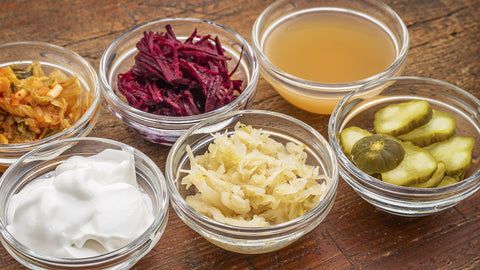
Use of Fermented Foods for Flavor and Nutrition
Fermented foods, such as sauerkraut and miso, are essential in a high raw vegan diet to maintain a healthy gut and supply additional nutrients and flavors.
These foods are prepared through a natural fermentation process that encourages the growth of beneficial bacteria or yeasts.
Sauerkraut is a tangy addition to salads or sandwiches, made by fermenting finely sliced cabbage with salt.
Miso, a soybean paste, is an umami-rich ingredient commonly found in Japanese cuisine and can be added to salad dressings, marinades, or raw soups for an extra burst of flavor.
Incorporating fermented foods into your high raw vegan diet provides valuable probiotics for gut health, enhances flavors, and helps to break down and assimilate nutrients even more efficiently.
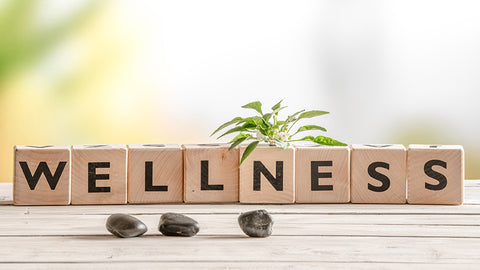
Health Implications and Medical Considerations
Impact on Digestion and Fiber Intake
A high raw vegan diet can positively affect your digestion by providing you with an ample amount of fiber.
Consuming a variety of fruits, vegetables, nuts, and seeds ensures that you are receiving both soluble and insoluble fiber.
This increase in fiber helps support a healthy gut and improved digestion.
However, it is essential to gradually increase your fiber intake to prevent potential gastrointestinal issues like gas, bloating, and cramping.
Weight Loss and Management
Adopting a high raw vegan diet may aid in weight loss and management.
Consuming whole, unprocessed fruits and vegetables provides low-calorie dense foods with high water content, which promotes satiety.
Over an extended period, this can lead to weight loss, as one study indicates that people on raw vegan diets lost an average of 9.9-12 kilograms (21.8-26.5 pounds) in 3.7 years.
Nonetheless, it is crucial to ensure that you are consuming adequate calories and essential nutrients, such as protein, vitamin B12, and iron, to maintain good health, energy levels, and proper body function.
Preventing and Managing Heart Disease and Diabetes
A high raw vegan diet may be beneficial in preventing and managing heart disease and type 2 diabetes.
Raw plant-based foods tend to be lower in saturated fats and higher in antioxidants and anti-inflammatory compounds.
As a result, this can help lower cholesterol levels, reduce inflammation, and improve blood sugar control.
However, unsupplemented raw vegan diets might be deficient in certain nutrients like vitamin B12 and omega-3 fatty acids, which are essential for maintaining cardiovascular health.
Make sure to consult with a healthcare professional to ensure that your diet meets all necessary nutritional requirements.
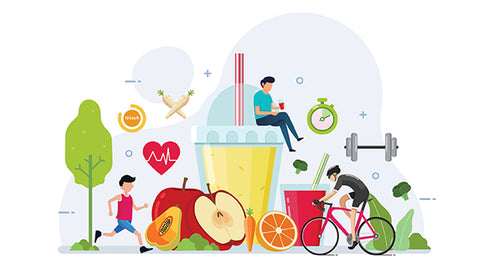
Lifestyle and Environmental Considerations
Ethical and Ecological Benefits of Veganism
Adopting a high raw vegan diet is beneficial not only for your health, but also for the environment and animals.
By choosing plant-based foods, you support a considerably lower carbon footprint compared to other dietary practices.
Furthermore, this lifestyle promotes ethical treatment of animals by not consuming or using animal products.
It's important to note that raw veganism goes beyond just following a vegan diet.
A focus on consuming unprocessed, raw foods contributes to a more sustainable and eco-friendly lifestyle.
For example, less energy and resources are used when preparing raw meals, reducing your environmental impact even more.
Navigating Social Situations and Dining Out
Transitioning to a high raw vegan diet may present challenges in social situations and dining out. Here are some tips to help you adapt:
- Plan ahead: Research restaurants and menus in advance to find raw vegan options or places that offer customizations.
- Bring a dish: When attending gatherings, offer to bring a raw vegan dish to share with others. This ensures you have something to eat while introducing others to the benefits and deliciousness of raw vegan food.
- Building a support system: Connect with fellow raw vegans, be it through local groups, online forums, or social media. Networking with like-minded individuals can help you navigate social situations more easily and provide you with valuable advice.
Supplement Use and Finding the Balance
While a high raw vegan diet is rich in many nutrients, there are some potential deficiencies, such as vitamin B12.
Here’s a quick list of supplements you may need to consider:
- Vitamin B12: Crucial for nerve function, red blood cell production, and DNA synthesis.
- Vitamin D: Important for bone health, immune function, and mood regulation.
- Omega-3 fatty acids: Essential for brain function, heart health, and reducing inflammation.
- Iron and Zinc: These minerals are essential for normal bodily functions.
Finding the right balance takes time and commitment. Incorporating supplements into your high raw vegan diet may be necessary for optimal health.
Be sure to consult with a healthcare professional or registered dietitian to discuss your specific needs and ensure you are getting the nutrients your body requires.
Frequently Asked Questions
What foods are typically included in a high raw vegan diet?
In a high raw vegan diet, you primarily consume plant-based foods in their uncooked and unprocessed state.
This typically includes fruits, vegetables, nuts, seeds, sprouts, and seaweed.
You should also focus on incorporating nutrient-dense foods such as dark leafy greens and fruits rich in omega 3s.
For example, avocados contain 100 calories, while watermelon seeds are rich in magnesium.
Who are some well-known individuals who follow a high raw vegan lifestyle?
Celebrities such as Woody Harrelson, Alicia Silverstone, and Tonya Kay are three well-known individuals who follow a high raw vegan lifestyle.
They've been vocal about the benefits they've experienced, ranging from increased energy levels to improved overall health.
How does a high raw vegan diet differ from other plant-based diets?
A high raw vegan diet is a subset of veganism that focuses on consuming mainly uncooked, unprocessed plant-based foods.
While whole-food, plant-based diets also center around fruits, vegetables, and legumes, they often include cooked and minimally processed foods.
In contrast, a high raw vegan diet aims to preserve the nutrients present in raw foods, which may be diminished through cooking or processing.
Can you provide some high raw vegan meal preparation tips?
To prepare high raw vegan meals, focus on using fresh, ripe, and in-season ingredients.
Your meals should consist mainly of fruits, vegetables, nuts, and seeds. Invest in a quality blender and food processor for smoothies, raw sauces, and nut-based cheeses or creams.
Additionally, consider sprouting beans, seeds, and nuts for added nutritional value and variety.
Finally, get creative with salads and raw wraps by using various leafy greens and an assortment of vegetable fillings.
What are some potential health benefits and risks of a high raw vegan diet?
Potential health benefits of a high raw vegan diet include weight loss, improved digestion, increased energy levels, and enhanced nutrient absorption.
However, there are also some risks associated with this diet.
Due to the lack of cooked and processed foods, you might face challenges in meeting your daily nutritional requirements - particularly for vitamin B12, vitamin D, zinc, calcium, and iron.
To avoid deficiencies, it is important to consume a well-planned and balanced diet.
How does one ensure adequate nutritional intake on a high raw vegan diet?
To ensure adequate nutritional intake on a high raw vegan diet, prioritize consuming a wide variety of fruits, vegetables, nuts, seeds, and sprouts.
Consider incorporating fortified plant-based milk or supplements, especially for nutrients like vitamin B12, vitamin D, and omega-3 fatty acids.
Regularly monitor your nutritional levels through blood tests and consult a healthcare professional or certified nutritionist to assist you in maintaining a well-balanced diet.
Conclusion
Following a high raw vegan diet can offer numerous benefits to your overall health and well-being. By consuming unprocessed plant-based foods, you are providing your body with an abundance of vitamins, minerals, and antioxidants.
This type of diet can support heart health, boost insulin sensitivity, and potentially aid in weight loss.
However, it is important to be aware of the potential challenges and risks associated with a raw vegan diet.
Some nutrients, such as calcium and vitamin D, might be lacking in this regimen, which could affect bone health.
To ensure you're meeting your nutritional needs, you may want to consider incorporating certain fortified foods or supplements into your diet.
Here are a few tips to help you thrive on a high raw vegan diet:
- Variety is key: Include a wide range of fruits, vegetables, nuts, seeds, and legumes to ensure you're consuming all the essential nutrients.
- Proper food preparation: Learn different techniques to make raw foods more appealing and easier to digest, such as blending, soaking, and sprouting.
- Listen to your body: Adjust your diet accordingly if you experience any uncomfortable symptoms or health concerns.
In conclusion, it is essential to do thorough research and consult with a healthcare professional before embarking on a high raw vegan diet.
By taking a balanced approach and being mindful of your body's needs, you can reap the potential benefits this lifestyle has to offer while mitigating any risks.

